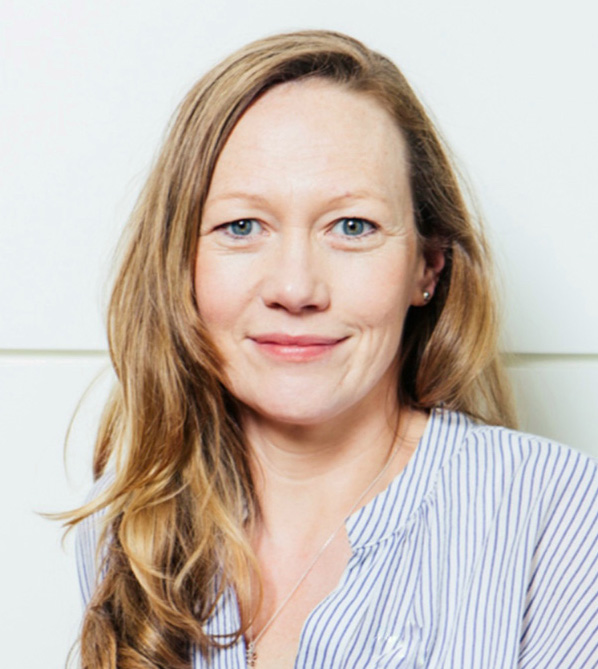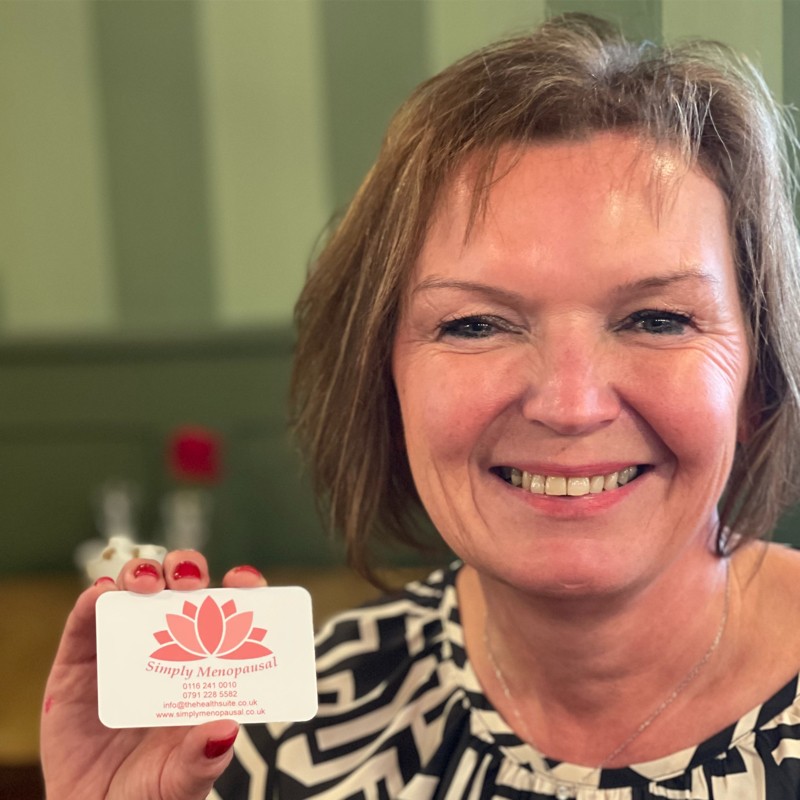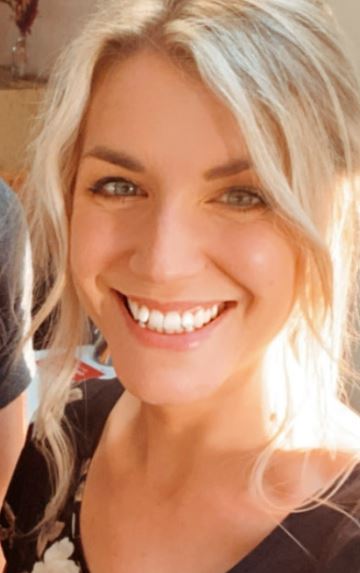How to identify early menopause signs and symptoms and advice from specialists on navigating this change
Plus, where to find help and support if you start to experience early menopause signs and symptoms

Debra Waters

Early menopause signs and symptoms can vary in severity and may differ from person to person, but there are some common changes to look out for and be aware of.
Early menopause can affect both your physical and mental health, and so knowing the signs and symptoms to look out for can help you get the support you need to navigate this change sooner rather than later.
We consulted Dr Elise Dallas, a women’s health GP specialising in menopause at The London General Practice, and Aly Dilks, a Menopause Specialist and member of the British Menopause Society (BMS), and both experts shared their knowledge on early menopause with us and their advice for anyone going through what can be a very difficult and life-altering change.
The information in this article is for general purposes only and does not take the place of medical advice. It is essential to be guided by your GP and take note of official NHS advice. Speak to your GP if you think you are experiencing the signs or symptoms of early menopause, or ask to see a menopause specialist or psychologist, who can provide personalised guidance and strategies to manage symptoms and navigate challenges during this transition.
What is early menopause and what age does it start?
The NHS defines early menopause as, "when your periods stop before the age of 45. It can happen naturally or be caused by treatment for other conditions."
Most women start the menopause between the ages of 45 - 55. In the UK, the average age for women to go through the menopause is 51 - but for some women this change will start much earlier and they will experience early menopause or premature menopause. The main difference between early menopause and premature menopause is the age at which a person will start to experience menopause symptoms.
Dr Elise Dallas explains, "Premature menopause is menopause that occurs before the age of 40 years. Early menopause occurs between the age of 40 and 45."
Parenting advice, hot topics, best buys and family finance tips delivered straight to your inbox.
Aly Dilks explains that, "Premature menopause – also called premature ovarian insufficiency (POI) or premature ovarian failure – is when the ovaries stop functioning in women younger than 40."
Early menopause and premature menopause aren’t too common in the UK, with Dr Dallas revealing, "a spontaneous (natural) early menopause affects approximately 5% of the population before the age of 45. Premature menopause is estimated to affect 1% of women under the age of 40 years and 0.1% of women under the age of 30 years."
You have a higher chance of experiencing early menopause if other women in your mother's family also had an early menopause. Early menopause is also more likely in women who started their periods before the age of eight, are underweight, have never given birth or who smoke.
The NHS says that, "Early menopause can also be brought on when you have treatment for other conditions." These treatments include radiotherapy or chemotherapy, certain hormone medicines and surgery to remove your ovaries.
What is the difference between perimenopause and early menopause?
Dr Dallas explains: "Perimenopause is when you have symptoms of menopause, but your periods have not stopped. Perimenopause ends and you reach menopause when you have not had a period for 12 months - if this happens before the age of 45 years this is early menopause."
What are the signs and symptoms of early menopause?
The main sign and symptom that you may have entered early menopause is not having your period regularly or your periods stopping completely. Other symptoms include:
- Hot flushes and night sweats
- Vaginal dryness
- Difficulty sleeping
- Low mood or anxiety
- Decreased sex drive
- Problems with memory or concentration
These symptoms can vary in severity and may differ from person to person. If you are not having your period regularly and have any of these symptoms it is important to speak to your GP or make an appointment to see a menopause specialist.
The NHS states, "A GP, nurse or pharmacist can give you advice and help with your menopause or perimenopause symptoms. There are also menopause specialists who have experience in supporting anyone going through perimenopause and menopause."
How is early menopause diagnosed?
Dr Dallas explains, "If you are under 45 years of age and have irregular periods, or they have stopped for more than 3 months, your GP might think you are going through early menopause, they'll ask you about your symptoms and ask if early menopause runs in your family, do a physical examination, do other tests, such as a pregnancy test, hormone tests (oestradiol, follicle-stimulating hormone (FSH), and luteinizing hormone (LH) and an ultrasound.”
Aly Dilks adds, "your GP will ask you about your symptoms and family history, then offer blood tests to measure FSH (follicle stimulating hormone). Two tests, taken six weeks apart, are required to confirm diagnosis of early menopause."
What happens to the body and mind in early menopause?
During early menopause, hormonal changes in the body can have an impact on both your physical and mental health.
Dr Dallas explains, "Some common symptoms include hot flushes, night sweats, and changes in the menstrual cycle. Additionally, fluctuations in hormone levels can also affect mood and mental well-being. Women may experience increased feelings of anxiety, stress, and even depression during this time. It is also not uncommon to feel a sense of anger or irritability.
"The early transition to menopause can have significant implications for a woman's work performance and overall well-being. Fluctuating hormone levels during perimenopause can lead to symptoms such as hot flushes, mood swings, fatigue, and cognitive changes, all of which may affect concentration, memory, and productivity in the workplace. Additionally, sleep disturbances commonly experienced during this time can further exacerbate these challenges.
"Also, with early menopause the potential loss of fertility, when family planning isn't complete, further intensifies the emotional strain. One particularly sensitive aspect is the impact on femininity and self-image. Menopause can lead to changes in body composition and can trigger feelings of ageing or losing a sense of identity. It can be common to feel even more isolated than a woman going through menopause in her midlife. Most are also left to cope on their own with no option for HRT and feel like they have nowhere to turn and feel very lonely.
"The other downsides to going into early menopause is that we know oestrogen is cardioprotective and bone protective so low oestrogen levels can affect bone density and heart function. You'll also have a higher chance of developing conditions such as osteoporosis and cardiovascular disease.”
Speak to your GP or a menopause specialist if you think you are experiencing symptoms of early menopause. If you're finding going through early menopause difficult and it's affecting your mental health, help and support is available here and you can get NHS talking therapies without seeing a GP first. Get access to the NHS talking therapies service here.
Can early menopause be treated or reversed?
Unfortunately there is no way to reverse early menopause, but there is treatment, help and support available if you are going through it.
Dr Dallas says, "You can't reverse menopause or make your ovaries function normally again. However, your doctor can help reduce the symptoms and side effects of menopause." She adds, "In the case of primary ovarian insufficiency (POI), there's a small possibility you'll regain ovarian function."
The NHS states, "The main treatment for early menopause is taking medicines such as the combined contraceptive pill or HRT to replace your missing hormones. You can also try making lifestyle changes to help manage your symptoms."
HRT is not always necessary for women experiencing their menopause within the usual age range. However, it’s usually required for younger women experiencing early menopause "who have different hormonal needs so higher doses of oestrogen are often required," explains Aly Dilks.
Dr Dallas adds that, "there are non-hormonal medications to help with symptoms" of early menopause and she also recommends, "acupuncture, meditation, cognitive behavioural therapy and yoga" as these practices, "have all found to be helpful" in the treatment of early menopause symptoms.
If you think you have early menopause you should speak to your GP or arrange to see a menopause specialist. There are also specialist menopause centres in the UK that can offer treatment. You can find your nearest NHS or private menopause specialist on the British Menopause Society website here.
How does early menopause affect fertility?
Dr Dallas confirms that, "your fertility will be affected" by early menopause and this will have an impact on whether you can still get pregnant or not. "Both early and premature menopause affect your ability to get pregnant because you're not ovulating," Dr Dallas explains.
However, experiencing symptoms of early menopause doesn’t mean you are no longer fertile - pregnancy is still possible for some people, although this will very much depend on individual circumstances.
"During this stage, although ovulation is more irregular, it can take place, therefore pregnancy is still possible," Dr Dallas says. "However, if you're experiencing early menopause and want to get pregnant, it's advisable to seek medical advice and consider different options, such as ovarian stimulation or egg donation. If you have gone 12 months without menstruating then it is unlikely you can get pregnant."
Aly Dilks agrees that if you are concerned about your fertility, or are trying for a baby and experience the symptoms of early menopause, you should speak to a specialist as soon as possible. "Women who become menopausal at a young age should be referred to a menopause specialist," advises Dilks. "If your fertility has been affected they will be able to talk you through your options. These include IVF and egg donation, surrogacy and adoption."
Advice on what to do if you are going through early menopause
Advice from Dr Elise Dallas on what to do if you think you might be experiencing early menopause:
- Get specialist help: Dr Dallas advises seeking help from menopause specialists, as they will be able to give you help and support for not only menopause challenges but they will also be able to advise you on fertility issues. As mentioned above the other downsides of going into early menopause is that low oestrogen levels can affect bone density and heart function, but this is where [specialists] can come in and advise on ways to manage the symptoms and protect the heart and bones. Hormones need to be replaced to ensure not only improvement of symptoms but protection of future bone, brain and heart health.
- Adjust your lifestyle to help with the changes: I am very much an advocate of lifestyle modification working on all 4 pillars of excellent nutrition - (ensuring enough vitamin D and calcium and omega 3 and magnesium and keeping cholesterol down), exercise (weight bearing for bones and cardiovascular for the heart), ensuring a good nights sleep and enhancing stress and well-being.
- Prioritise Self-Care: It's essential for women experiencing these symptoms to prioritise self-care. This includes getting adequate rest, practising stress-management techniques such as mindfulness or deep breathing exercises, and maintaining a healthy lifestyle with regular exercise and nutritious diet.
- Open Communication: Communicate with your employer or supervisor about your menopausal symptoms and how they may impact your work. Establishing an open dialogue can lead to accommodations or adjustments that support your productivity and well-being.
- Utilise Resources: Take advantage of resources available in the workplace, such as employee assistance programs or wellness initiatives, that may offer support for managing menopausal symptoms and promoting overall well-being.
Speak to your GP or a menopause specialist if you think you are experiencing symptoms of early menopause. If you're finding going through early menopause difficult and it's affecting your mental health, help and support is available here and you can access the NHS talking therapies service here.
There are also many excellent support groups and charities to help women facing early menopause, including:
- Women’s Health Concern (WHC) - a trusted source of information on menopause for women and their partners
- Menopause Matters - an award winning, independent website providing up-to-date, accurate information about the menopause - including early menopause
- Earlymenopause.com - an online community providing a wealth of information
- The Daisy Network - a nationwide charity that offers support and guidance for women with premature ovarian insufficiency (POI)
- Menopause cafe - organises events where you can talk about the menopause and share experiences with likeminded women over a cup of tea
- Queer Menopause - finds and promotes inclusive menopause resources for people who are LGBTQIA+
Dr Elise Dallas answers frequently asked questions about early menopause
Are there any benefits to early menopause?
"Starting menopause early can actually protect you from other diseases," Dr Dallas says. "These include oestrogen-sensitive cancers such as breast cancer. People who enter menopause late (after age 55) are at greater risk of breast cancer than those who enter the transition earlier."
Can PCOS cause early menopause?
"Women with PCOS tend to reach menopause about two years later than women without PCOS," says Dr Dallas. "PCOS doesn't go away with menopause, so you can continue to have symptoms. Some symptoms of PCOS are similar to those of perimenopause. That can make it difficult for women to be newly diagnosed with PCOS during perimenopause."
"One study shows that women with PCOS can go through menopause an average of two years later than women without the condition."
Does early menopause run in families?
Dr Dallas says: "You have a higher chance of going through the menopause early if other women in your mother's family also had an early menopause. It's also more likely if you: started your periods early (before the age of 8) have never given birth or have only given birth once or twice."
Can IVF cause early menopause?
No, IVF does not cause early menopause. Dr Dallas says, "There is a misconception that IVF consumes future eggs, but in reality, it utilises eggs that would have been naturally lost in the ongoing cycle. Therefore, IVF does not accelerate egg loss or induce premature menopause."
Can early menopause be prevented?
"While there are certain factors that may increase the risk of early menopause, such as genetic predisposition or certain medical conditions, preventing early menopause is not always possible," Dr Dallas answers.
"Causes of menopause like health conditions, surgeries or treatment for cancer are unpreventable in most cases. In such cases, early menopause may be an unavoidable consequence."
Dr Dallas adds, "It's important to remember that every individual is unique, and the factors that contribute to menopause can vary."
Can early menopause be triggered by lifestyle factors?
Dr Dallas told us that the only lifestyle factor that may trigger early menopause is smoking: "Smoking cigarettes is the only lifestyle factor that possibly contributes to early menopause. You can reduce your risk of menopause by quitting smoking."
The information on GoodTo.com does not constitute medical or other health advice or diagnosis and should not be used as such. Although GoodtoKnow consults a range of medical experts to create and fact-check content, this information is for general purposes only and does not take the place of medical advice. Always seek the guidance of a qualified health professional or seek urgent medical attention if needed.
Our experts

Dr Elise Dallas is a General Practitioner at The London General Practice with over 20 years of experience. She graduated from Leicester Warwick Medical School in 2004, having previously earned a Bachelor of Science degree in Psychology and Human Biology. She is a Member of the Royal College of General Practitioners and holds several postgraduate diplomas in Obstetrics and Gynaecology, Sexual and Reproductive Health as well as a qualification from the British Menopause Society.

Aly has experience in the field of menopause working in both the NHS and the Private Sector. She is a member of the British Menopause Society (BMS) and the Faculty of Sexual and Reproductive Healthcare (FSRH) and has also completed The British Menopause Society Advanced Certificate in the Principles and Practice of Menopause Care.
This article was originally published on June 2nd 2020 and was updated on April 22nd 2024 to ensure that all information is up to date and reflects current expert advice on the topic.

An internationally published digital journalist and editor, Rachael has worked for both news and lifestyle websites in the UK and abroad. Rachael's published work covers a broad spectrum of topics and she has written about everything from the future of sustainable travel, to the impact of the coronavirus pandemic on the world we live in, to the psychology of colour.
- Debra WatersFreelance Lifestyle Writer